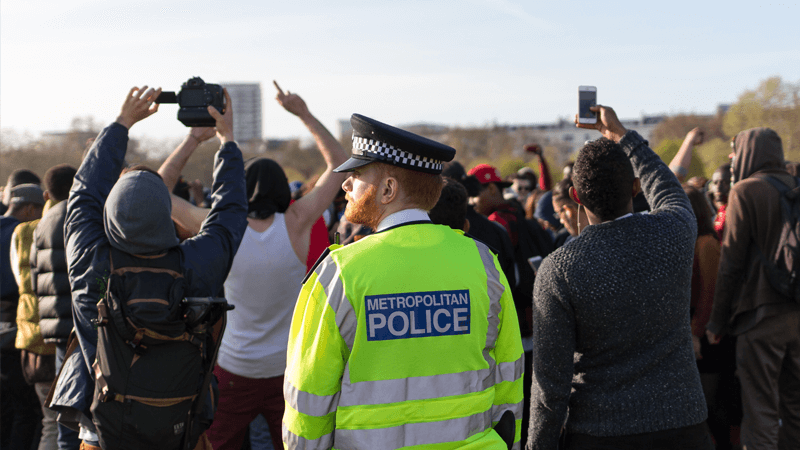Handshakes, haircuts and ‘hate’

COMMENT
What have handshakes, the smell of fish, haircuts and Bob the builder got in common?
Give up?
The answer is of course that they have all featured in records of non-crime hate incidents.
More than 13,200 such incidents have been logged by UK police forces in the past year,
That includes someone for refusing to shake a person’s hand in a row over gender identity, two schoolgirls who said another student smelled ‘like fish’ and a complaint over an ‘aggressively-administered haircut’.
In 2021, a man was landed with a police record for ‘racial hatred’ for whistling the Bob The Builder theme tune at his neighbour.
attempts to define ‘hate’ have proven both elusive and divisive.
It’s easy to laugh, but a recent investigation estimated that 60,000 police hours a year are spent on NCHIs, that’s about nine for every 100 officers and represents a lot of taxpayers’ money.
Remember, by definition none of these incidents are crimes, so there are obvious and understandable concerns that recording them is a misuse, if not an outright waste of police time, and calls are growing for them to be scrapped even as Home Secretary Yvette Cooper pledges to get the police to record even more of them.
But there are other concerns than police time. An NCHI can trash employment prospects with potentially life changing implications. And we must consider the broader chilling effect on religious freedom and freedom of expression.
Lord Justice Sedley famously once said:
“Freedom of speech includes not only the inoffensive but the irritating, the contentious, the eccentric, the heretical, the unwelcome and the provocative, provided it does not tend to provoke violence. Freedom only to speak inoffensively is not worth having.”
As Christians we should never seek to cause unnecessary offense of course. But many of those who oppose biblical truth claim disagreement is offensive and hateful. To them, our beliefs are an offense! Yet like Peter and John we must say we cannot stop speaking about what we have seen and heard.
Now, hopefully we can all agree that hating others is wrong. But attempts to define ‘hate’ have proven both elusive and divisive.
Hate means very different things to different people. Some groups argue that it is ‘hateful’ for a person to refuse to use a trans person’s chosen pronouns or simply to uphold the reality of biological sex. Others argue that it is hateful to advocate the view that real marriage can only be between one man and one woman.
Some would say that to proclaim the exclusive claims of Christ as Saviour and Lord is hateful. After all the declaration “I am the way, the truth and the life” said Jesus. “No one comes to the Father except through me” is a declaration that all other religions are false religions.
Everyone, Christians included, should be able to engage in lawful debate on contentious issues without “police interference”. We must be careful not to concede ground and allow non crime hate incidents or any other tool to close down debate and silence Christians.
And if we think that such a thing could never happen, we should think again. As far back as 2005 the Christian Institute was helping a couple interrogated by the police for over an hour because they complained to their local council about its gay rights policies. Police officers told Joe and Helen they were on the verge of committing a ‘homophobic hate crime’. We give thanks to God that with our help they won an apology and damages.
More recently, we were called into action to help street preacher Angus Robertson when, like the Roberts, he was accused of using ‘homophobic language’ despite bystanders verifying he had been neither offensive nor aggressive.
Although he was not prosecuted, he was told a ‘non-crime hate incident’ would be logged against his name. It required further legal action to force the police to delete all reference to this unsubstantiated ‘non-crime’ from its records.
So the law is on our side! And we should be encouraged by the fact that we have a long history of freedom of expression in this country. But we mustn’t take it for granted. We need to keep working to preserve it, and like Peter and John say we cannot stop speaking about what we have seen and heard.

By Ciarán Kelly, Director